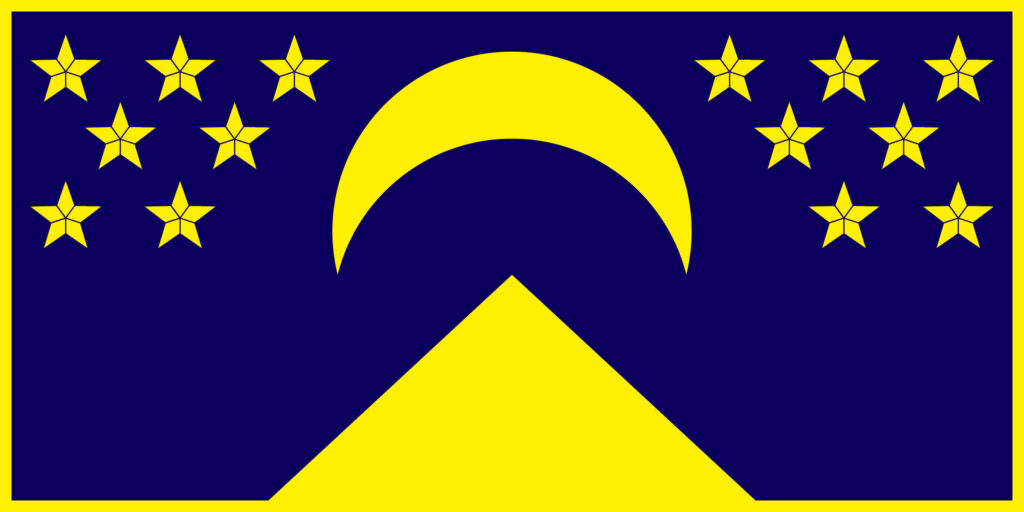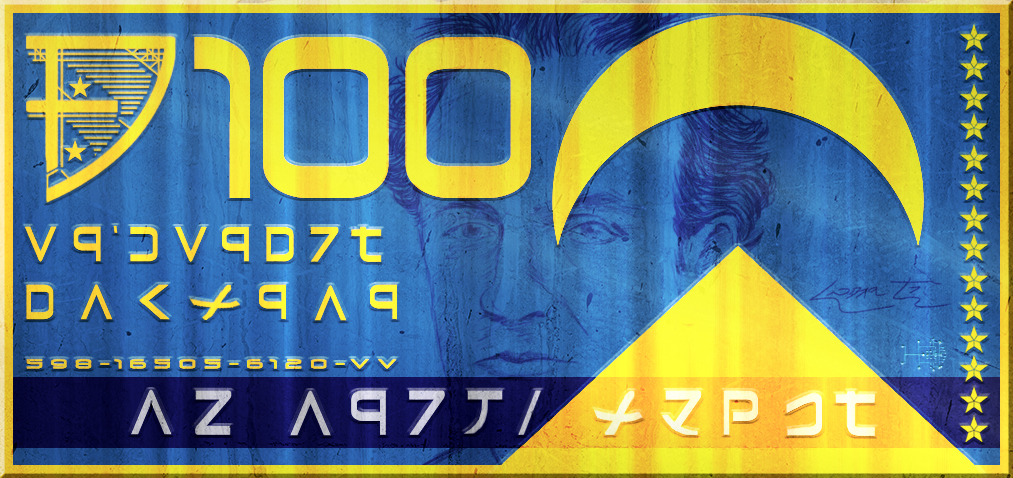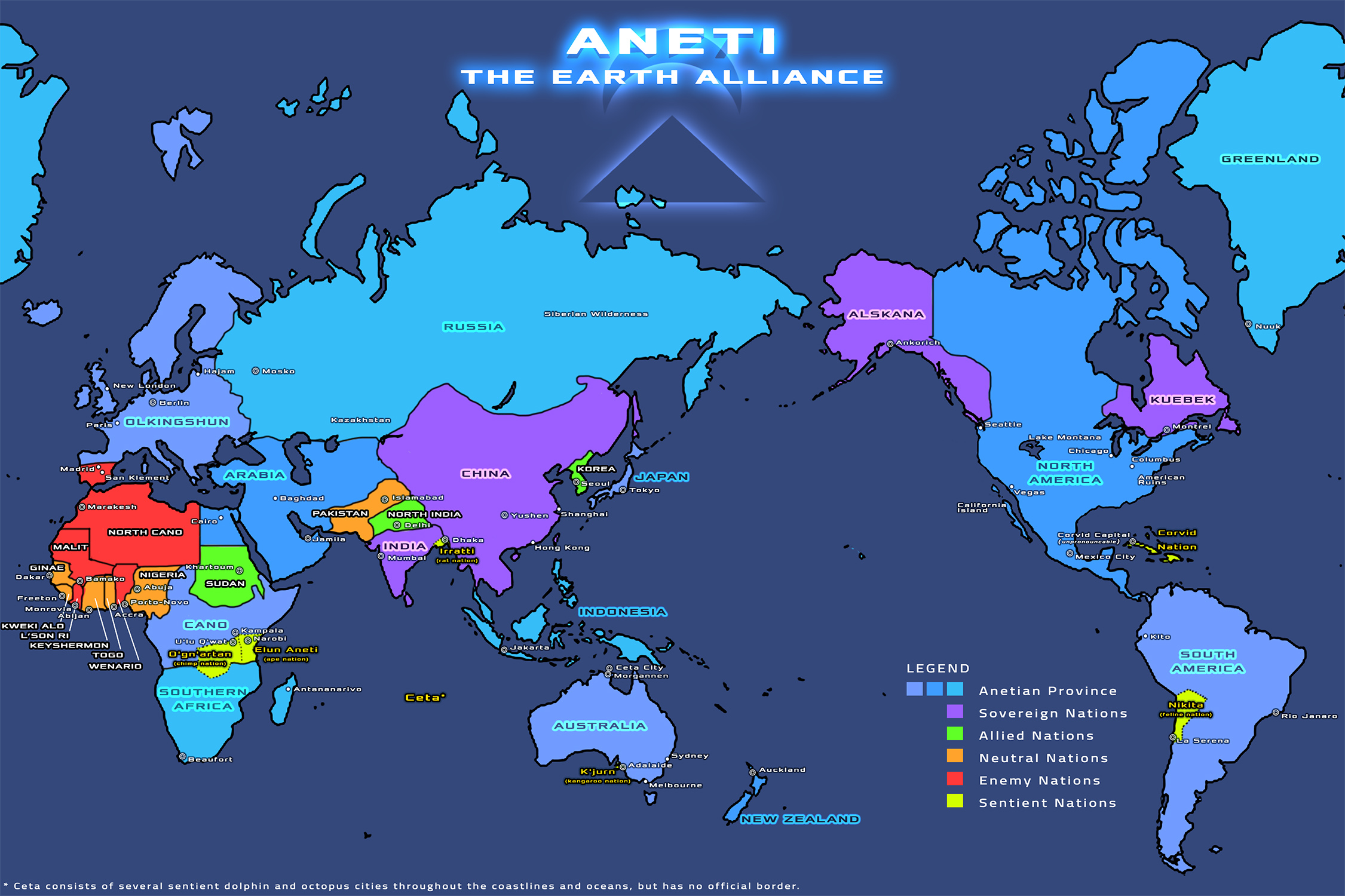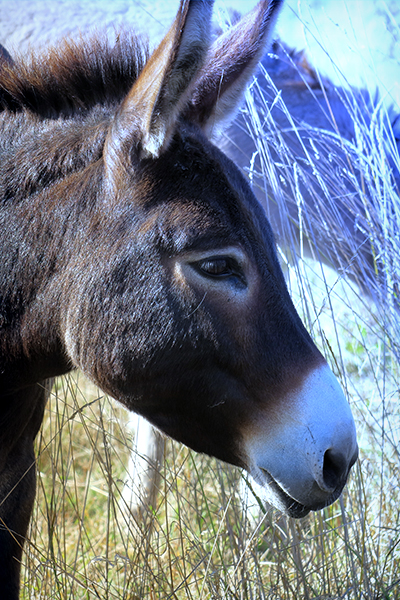
The World of the Sentients
Centuries after humanity survived a cataclysmic extinction event and rebuilt civilization from the ashes, a new empire rose to claim dominion over Earth and beyond. Its name is Aneti.
In this distant future, among the myriad of technological advancements, science accidentally unlocks the means to uplift animals to human-level intelligence. But this is not the story of the first generation of uplifted species. This is about what comes a century later after dozens of species have long been adopted into society, where they are both accepted and feared. They are the sentients.
This novel series explores how humanity lives alongside these intelligent, talking animals and what happens when fear and hatred turns peaceful coexistence into burdensome situations, teetering the world of man and animal on the brink of a never-before-seen conflict.
WANT TO KNOW MORE?
The Sentient Laws
- Sentients are not eligible for citizenship and are not entitled to the benefits thereof. Sentients may be segregated from humans in public spaces unless interaction is necessary or explicitly invited by a human citizen.
- Sentients are required to comply with orders given by a human citizen, provided such orders do not violate any existing laws.
- All sentients must be registered with the Department of Social Services as Sentient Civilians. Sentient identification must be renewed every four years.
- Sentients may not be kept as pets, enslaved, subjected to experimentation, slaughtered, or otherwise restrained without probable cause in accordance with the law.
- Sentients are permitted to work in specific positions approved by the Department of Labor Services to ensure their financial livelihood.
- Sentients may be drafted into civil or military service as deemed necessary by the government.
- Sentients are ineligible to receive a trial by jury or serve as members of a jury.
- Sentients may uplift their offspring; however, no new species may be uplifted outside the official registry. Uplifting is restricted to licensed medical professionals, as permitted by law.
- Sentients are prohibited from engaging in sexual activities with humans for monetary gain. (Amended in 590)
The Nation of Aneti

Rising from the ashes of the New Dark Ages, Aneti began as little more than a small band of survivors in the Australian Outback. Now, claiming dominion over much of the Earth and numerous colonized worlds beyond, the imperial nation stands unrivaled. Over the course of seven centuries, this socialist democratic republic has expanded its reach across six continents, a moon, and an entire planet, with its sights set upon colonizing the galaxy.
After the end of the New Dark Ages, in a move that asserted their reign over the planet, Aneti reset the global calendar back to 0, starting a new era which abandoned the Gregorian calendar. Six hundred years later, Aneti maintains its authority and continues to expand, leading the way in technology and militaristic strength.
Its flag embodies the nation’s and humanity’s pursuit of progress and enlightenment, symbolized by the pyramid representing the foundations of civilization and the half-moon and stars symbolizing mankind’s expansion into the cosmos. Fourteen stars signify Aneti’s provinces. The colors provide further depth with blue standing for liberty, perseverance, and strength, and the gold reflecting Aneti’s power and wealth—not only in economic terms, but in its technological and scientific supremacy.
The Political System
Aneti is a democratic republic with a socialist-capitalist economy. Though imperialistic in its dominion over Earth and the territories beyond, it is not ruled by an emperor. Instead, authority is divided among a five-branch checks-and-balances system, composed of the following governing bodies:
- Chancellor
The executive branch which is led by a single individual who represents the nation. Although their powers are limited, their influence is unbounded, enabling them to expedite policies forward swiftly. - The Grand Magistrate
A council of twelve officials that holds the final authority over all decisions and legislation passed by the Senate. - Senate
This branch, composed of both senators and congresspersons, drafts and votes on legislation, beginning with Congress and followed by the Senate. - Judicial (aka The High Court)
The branch that determines the validity and constitutionality of laws, policies, and actions taken by the Chancellor, whether proposed or already in effect, and may order their suspension or repeal. They also oversee high-level court cases and monitor the conduct of elected officials. - The People
Certified Anetian citizens who have earned the privilege to vote by passing an exam and completing four core courses, which are typically taken during secondary education. The courses are: Logic and Critical Reasoning, Politics and Law, Constitutional Studies, and Political Debate.
Though all people are deemed equal under the Constitution, an individual cannot attain citizenship status without meeting the following requirements:
- Be a human.
- Be a legally recognized adult (automatically designated at age 18).
- Fulfill at least one of the following conditions:
- Be employed full-time (minimum 30 hours per week) or part-time if combined with another qualifying condition.
- Serve as a recruited or active-duty military member.
- Be enrolled in a nationally recognized educational institution (limited to seven years, unless extended by the institution).
- Hold elected office.
- Qualify as an “Artisan”—a broad exemption covering business owners, freelance artists, non-profit leaders, investors, and many others.
- Receive a special legal exemption (e.g., people with disabilities).
Failure to maintain these requirements may result in demotion to civilian status and/or legal penalties, which can include imprisonment, mandatory labor, or exile to wilderness regions, which are provisioned areas of Aneti beyond formal legal jurisdiction and organized society.
The Economy
Benefits of citizenship under Aneti’s socialized economy include:
- A guaranteed minimum wage, determined by job classification through the Department of Labor Services.
- Access to basic healthcare.
- Basic housing assistance if needed—typically co-ops or dormitories for single individuals, and small apartments for families.
- Provision of basic food and water if required.
- One week of paid time off per year, at the citizen’s discretion.
- Basic retirement income after fifty years of citizenship.
While Aneti’s socioeconomic system guarantees basic provisions for its citizens, it also offers a path for social advancement through a structured class system. Citizens can meet their fundamental needs at the base level, but by rising in rank, they gain access to additional benefits and privileges. There are four more levels of citizenship a person may attain:
- Honored Citizen
Individuals who stand above the average citizen, including:- Company managers
- Doctors, lawyers, engineers, scientists, and other elite professionals as designated by the Department of Labor Services
- Military personnel with a rank above private
- Wealthy artisans
- Low-level elected officials, such as mayors and judges
- Citizens recognized with national awards
- Dignitary
The elite class comprised of individuals such as:- Upper management or corporate executives
- Military officers
- Highly wealthy artisans
- Mid-level elected officials, such as congresspersons and governors
- Citizens honored with prestigious national awards
- Payan
This class represents the wealthiest and most influential members of society, including:- Company owners, presidents, and chief executives
- Military personnel holding ranks above Exultanein or serving in the Kometai Elite special forces
- Individuals with a net worth of ten million dakins or more (adjusted annually by the Department of Commerce)
- High-level elected officials, such as Senators and High Court justices
- Citizens granted this honorary rank directly by the Chancellor
- Leader
Same as the Payan class, except members hold positions within the Grand Magistrate, serve as the Chancellor, or act as the Supreme General of the military.

Aneti’s official currency is the dakin, denoted by the symbol Đ, which precedes the amount. It is an internally regulated currency, maintained and valued solely by the Anetian government, with minimal influence from foreign trade or external economic factors.
Primarily exchanged through non-physical, digital transactions, dakins can also be transferred using physical, plastic-like cards, which are about the length of a credit card but three-quarters as wide. These cards hold only whole values, with any fractional amounts always rounded up. Each dakin card can be quickly identified by its distinct color.
The Judicial Process
Under Aneti’s constitution, any person accused of a crime is presumed innocent until proven guilty—a right that extends to civilians and non-citizens alike. Even sentients are granted the opportunity to defend themselves in a court of law. However, only citizens are entitled to a free defense attorney and a jury trial. Sentients, civilians, and non-Anetians have no such guarantee and must either represent themselves or hire their own legal counsel. In cases without a jury, a judge alone determines the verdict.
Unlike traditional jury systems, Aneti’s juries are not composed of summoned citizens but rather of professional jurors. These individuals have formally studied the law and trained specifically for the role. During a trial, jurors observe proceedings from a separate room, hidden from everyone involved, including the judge. Only a jury supervisor knows the identities of the jurors and is responsible for ensuring they have no conflicts of interest or biases related to the case.
Law enforcement in Aneti consists of marshals, police officers, and the city guard. Marshals handle low-level crimes and domestic matters within communities. Police address more serious and violent offenses, including homicide investigations and organized crime. The city guard serves as a para-military force, deployed when situations escalate beyond police control, such as riots, hostage crises, or acts of terrorism.
Crimes in Aneti are classified by severity, each carrying distinct consequences:
- Transgression
Equivalent to an infraction, such as a speeding ticket in today’s world. Punishments involve only a fine or community service. - Level 1
Comparable to a misdemeanor. These offenses carry more serious charges and can result in substantial fines and/or up to one year in a labor camp. - Level 2
Non-violent felonies. Convictions can lead to up to five years in a minimum-security prison or forced labor. - Level 3
Violent offenses and other serious crimes. Convictions can result in up to fifteen years to life in a maximum-security prison (level 3 facility). - Level 4
Treason and the most heinous crimes. These charges are reserved for those deemed beyond redemption. Convictions lead to life imprisonment in an isolated level 4 facility or swift execution, which is typically a traditional firing squad. Often, judges grant the convicted a choice between life or death—a tradition that reflects the early days of Aneti, when one of its founders, General Morgan Cadwell, offered prisoners of war a similar choice.
When a person is accused of a crime, the severity of the charge determines how their arrest and detainment are handled. For a level 1 offense, the accused will typically spend up to one night in a police holding cell; law enforcement cannot detain a level 1 suspect for more than 24 hours.
For level 2, 3, or 4 charges, the accused may be held in a detainment facility, which is similar to a jail but designed with greater comfort, security, and privacy in mind. Detainees are provided with a private bedroom, a personal bathroom with basic amenities, and regular meals, but they are not permitted to leave until their trial concludes. In some cases, an accused person may be released if a judge deems them safe to await trial outside detention. However, such restricted freedom is generally denied for level 3 offenses and never granted for level 4 charges.
The concept behind detainment centers is to uphold the presumption of innocence by providing an environment that resembles a home rather than offering a preview of prison life.
Exile is another possible sentence, though it is typically reserved for individuals who refuse to maintain their citizenship status. Within Aneti’s vast borders lie harsh, designated Wilderness regions where civilization does not extend and the law no longer applies. While some select to live in these remote areas to escape Aneti’s reach, others are banished there by judicial order.
The Military
There are 5 branches of the military:
- Army
The ground force on Earth. - Navy
The air and sea forces on Earth. - Galactic Defense
The military branch that operates exclusively in space and interstellar regions. - Marines
A highly trained combat force responsible for operations across Earth and beyond. The Interplanetary Marines, a specialized branch within the Marines, focus exclusively on off-world missions. - Military Intelligence (MI)
The military’s intelligence branch, operating under clandestine conditions and recruiting personnel from both civilian life and all other military branches.
Anetian Military Ranks
All military branches have the same ranking system.
Field Ranks
| Recruit | RT | A soldier in training. |
| Private | PT | Lowest rank. |
| Preceptor | PR | Assists/Supervises a team (4-5 soldiers). |
| Corporal | CP | Assists/Supervises troops (6-15 soldiers). |
| Sergeant | ST-2 | Assists/Supervises units (16-23 soldiers). |
| 1st Sergeant | ST-1 | Assists/Supervises platoons (24-99 soldiers). |
| Suverus | SV | The highest-ranking non-officer position. Assists/Supervises up to 500 soldiers. |
Officer Ranks
| Lieutenant | CT | Commands units. |
| Signis | SN | Commands platoons. |
| Grand Signis | GS | Commands brigades (100-500 soldiers). |
| Captain | CN | Commands battalions (500 – 3,000 soldiers). |
| Atenaet | AT | Commands several battalions (3000 – 10,000 soldiers). |
| Commander | SA | Commands large ships and/or a division (10,000 – 50,000 soldiers). |
| Exultanein | EN | Oversees fleets, armies, and field operations. |
| Marshal | G-4 | Assistant to 3rd Generals. Technically a general. |
| 3rd General | G-3 | Oversees assigned military operations are carried out. Acts as advisors to higher ranking generals. |
| 2nd General | G-2 | Assistants to grand generals. Ensures orders are carried out. All are direct successors to grand generals. |
| Grand General | G-1 | Oversees a branch of the military. |
| Supreme General | SG | Single individual who oversees all military operations and all branches. |
Geography

Nations of the World
Beyond the empire of Aneti lie several other nations. Unlike the times prior to the New Dark Ages, far fewer countries exist. These include:
| Name | Capital City | Description |
|---|---|---|
| Aneti | Morgannen, Australia | The Earth empire. |
| Korea | Seoul | Anetian ally. |
| Lila-3 | Aran, Zone 1 | An Earth-like moon of a gas giant roughly 3000 light years from Earth. Anetian ally. |
| North India | Delhi | Anetian ally. |
| Sudan | Khartoum | Anetian ally. |
| L’son Ri | Monrovia | Anetian enemy. Part of the North Cano alliance. |
| Malit | Bamako | Anetian enemy. Part of the North Cano alliance. |
| North Cano | Marakesh, Morocco | Anetian enemy. Actively at war with Aneti. |
| Wenario | Porto-Novo | Anetian enemy. Part of the North Cano alliance. |
| Ginae | Dakar | Neutral nation. |
| Keyshermon | Abijan | Neutral nation. |
| Kweki Alo | Freeton | Neutral nation. |
| Nigeria | Abuja | Neutral nation. |
| Pakistan | Islamabad | Neutral nation. |
| Togo | Accra | Neutral nation. |
| Ceta | Ceta City, Arafura Sea | Sentient nation of dolphins and octopi. Anetian ally. |
| Corvid Nation (unpronounceable) | (unpronounceable), Cuba | Sentient nation of corvids. Neutral nation. |
| Elun Aneti | Narobi | Sentient nation of apes. Anetian ally. |
| Irratti | Dhaka | Sentient nation of rats. Anetian ally. |
| K’jurn | Adalaide | Sentient nation of kangaroos. Anetian ally. |
| Nikita | La Serena | Sentient nation of felids. Neutral nation. |
| O’gn’artan | U’lu Q’wat | Sentient nation of chimpanzees. Neutral nation. |
| Alskana | Ankorich | Sovereign nation under Aneti. |
| China | Yushen | Sovereign nation under Aneti. |
| India | Mumbai | Sovereign nation under Aneti. |
| Kuebek | Montreal | Sovereign nation under Aneti. |
The Anetian Provinces
Aneti is composed of fourteen provinces, which include Luna and Mars, and four sovereign nations. These sovereign nations function as independent countries with their own laws and governments yet remain bound to Aneti through shared interests and a unified economy.
| Province | Capital City |
|---|---|
| Arabia | Jamilia |
| Australia | Morgannen |
| Cano | Kampala |
| Greenland | Nuuk |
| Indonesia | Jakarta |
| Japan | Tokyo |
| Luna | Capernicus |
| Mars | Arcadia City |
| New Zealand | Auckland |
| North America | Mexico City |
| Olkingshun | Berlin |
| Russa | Mosko |
| South America | Rio Janaro |
| Southern Africa | Beaufort |
The Sentient Species
Sentients span 60 species, grouped into 40 types and classes, initially uplifted between 517 A and 562 A.
Classes of Sentients
Class A – Typically smaller sentients having short lifespans and early maturity.
Natural maturity: ages 3-7
Legal adult age: 11 years old
Educational years required: ages 1-11
Life expectancy: 20-45 years
Class B – Medium sized sentients with mid-range lifespan and early maturity.
Natural maturity: ages 4-8
Legal adult age: 14 years old
Educational years required: ages 3-14
Life expectancy: 25-55 years
Class C – Near human equivalent lifespans and maturity.
Natural maturity: ages 5-14
Legal adult age: 16 years old
Educational years required: ages 5-16
Life expectancy: 35-100 years
Types of Sentients
DOLPHIN

Bottlenose dolphin – Tursiops truncatus
Type: 1-C
First Uplifted: 517
Uplifted By: Kantu Labs, Sydney
Communication Methods:
– Vocal / Translator
Common Biocybernetic Enhancements:
– Drysuit integration
Average Lifespan: 50-70 years
CHIMPANZEE

Chimpanzee – Pan troglodytes
Type: 2-C
First Uplifted: 519
Uplifted By: Kantu Labs, Sydney
Communication Methods:
– Vocal
Common Biocybernetic Enhancements:
– Spinal adjustments for upright posture
Average Lifespan: 70-90 years
Lar gibbon – Hylobates lar
Type: 3-C
First Uplifted: 520
Uplifted By: Kantu Labs, Sydney
Communication Methods:
– Vocal
Common Biocybernetic Enhancements:
– Spinal adjustments for upright posture
Average Lifespan: 80-100 years
Brown – Rattus norvegicus
Black – Rattus rattus
Type: 4-A
First Uplifted: 520
Uplifted By: Kantu Labs, Sydney
Communication Methods:
– Vocal
Common Biocybernetic Enhancements:
– Spinal adjustments for upright posture
– Opposable thumbs
Average Lifespan: 20-40 years
SPIDER MONKEY

White-bellied – Ateles belzebuth
White-cheeked – Ateles marginatus
Black-headed – Ateles fusciceps
Geoffroy’s – Ateles geoffroyi
Type: 5-C
First Uplifted: 520
Uplifted By: Kantu Labs, Sydney
Communication Methods:
– Vocal
Common Biocybernetic Enhancements:
– Spinal adjustments for upright posture
Average Lifespan: 50-70 years
ORANGUTAN

Bornean orangutan – Pongo pygmaeus
Type: 6-C
First Uplifted: 521
Uplifted By: Kantu Labs, Sydney
Communication Methods:
– Vocal
Common Biocybernetic Enhancements:
– Spinal adjustments for upright posture
Average Lifespan: 70-90 years
Western – Hoolock hoolock
Eastern – Hoolock leuconedys
Type: 7-C
First Uplifted: 521
Uplifted By: Kantu Labs, Sydney
Communication Methods:
– Vocal
Common Biocybernetic Enhancements:
– Spinal adjustments for upright posture
Average Lifespan: 50-70 years
MACAQUE MONKEY

Arunachal – Macaca munzala
Assam – Macaca assamensis
Barbary – Macaca sylvanus
Japanese – Macaca fuscata
Indochinese rhesus – Macaca mulatta
Toque – Macaca sinica
Type: 8-C
First Uplifted: 521
Uplifted By: Kantu Labs, Sydney
Communication Methods:
– Vocal
Common Biocybernetic Enhancements:
– Spinal adjustments for upright posture
Average Lifespan: 65-85 years
BABOON

Chacma – Papio ursinus
Kinda – Papio kindae
Olive – Papio anubis
Yellow – Papio cynocephalus
Guinea – Papio papio
Hamadryas – Papio hamadryas
Type: 9-C
First Uplifted: 521
Uplifted By: Kantu Labs, Sydney
Communication Methods:
– Vocal
Common Biocybernetic Enhancements:
– Spinal adjustments for upright posture
Average Lifespan: 70-90 years
Dog – Canis lupus familiaris
Type: 10-B
First Uplifted: 521
Uplifted By: Kantu Labs, Sydney
Communication Methods:
– Vocal
Common Biocybernetic Enhancements:
– Spinal adjustments for upright posture
– Opposable thumbs
– Elongated fingers
Average Lifespan: 30-50 years
DOMESTICATED CAT

Domesticated cat – Felis catus
Type: 11-C
First Uplifted: 521
Uplifted By: Kantu Labs, Sydney
Communication Methods:
– Vocal
Common Biocybernetic Enhancements:
– Spinal adjustments for upright posture
– Opposable thumbs
– Elongated fingers
Average Lifespan: 35-55 years
RAVEN

Raven – Corvus corax
Type: 12-C
First Uplifted: 525
Uplifted By: Kantu Labs, Sydney
Communication Methods:
– Vocal
Common Biocybernetic Enhancements:
– None
Average Lifespan: 80-100 years
CROW

Carrion crow – Corvus corone
Type: 13-C
First Uplifted: 525
Uplifted By: Kantu Labs, Sydney
Communication Methods:
– Vocal
Common Biocybernetic Enhancements:
– None
Average Lifespan: 80-100 years
PIG

Pig – Sus scrofa domesticus
Type: 15-B
First Uplifted: 530
Uplifted By: Kantu Labs, Auckland
Communication Methods:
– Vocal
Common Biocybernetic Enhancements:
– Spinal adjustments for upright posture
– Cybernetic hands
Average Lifespan: 30-50 years
OCTOPUS

Common octopus – Octopus vulgaris
Type: 16-A
First Uplifted: 530
Uplifted By: Admyre Dynamics, Sydney
Communication Methods:
– Translator
– Cetan Sign Language
Common Biocybernetic Enhancements:
– Drysuit integration
Average Lifespan: 20-40 years
WEASEL

Stoat – Mustela erminea
Siberian – Mustela sibirica
Ferret – Mustela furo
Type: 18-A
First Uplifted: 532
Uplifted By: Kantu Labs, Sydney
Communication Methods:
– Vocal
Common Biocybernetic Enhancements:
– Opposable thumbs
Average Lifespan: 20-40 years
MARTEN

European pine – Martes martes
Sable – Martes zibellina
Type: 19-A
First Uplifted: 532
Uplifted By: Kantu Labs, Sydney
Communication Methods:
– Vocal
Common Biocybernetic Enhancements:
– Opposable thumbs
– Elongated fingers
Average Lifespan: 20-45 years
HORSE

Horse – Equus ferus caballus
Type: 20-C
First Uplifted: 534
Uplifted By: Kantu Labs, New London
Communication Methods:
– Vocal
Common Biocybernetic Enhancements:
– Wireless robotic arm and hand integration
Average Lifespan: 50-70 years
RABBIT & HARE

European rabbit – Oryctolagus cuniculus
Desert hare – Lepus tibetanus
European hare – Lepus europaeus
Type: 21-A
First Uplifted: 536
Uplifted By: Kantu Labs, Hong Kong
Communication Methods:
– Vocal
Common Biocybernetic Enhancements:
– Spinal adjustments for upright posture
– Opposable thumbs
– Elongated fingers
Average Lifespan: 20 – 45 years
Donkey – Equus asinus
Type: 22-C
First Uplifted: 538
Uplifted By: Kantu Labs, New London
Communication Methods:
– Vocal
Common Biocybernetic Enhancements:
– Wireless robotic arm and hand integration
Average Lifespan: 60-80 years
Eastern grey – Macropus giganteus
Red – Osphranter rufus
Type: 23-C
First Uplifted: 538
Uplifted By: Kantu Labs, Sydney
Communication Methods:
– Vocal
Common Biocybernetic Enhancements:
– Opposable thumbs
– Spinal/leg adaptation for walking
Average Lifespan: 40-60 years
MEERKAT

Meerkat – Suricata suricatta
Type: 24-B
First Uplifted: 538
Uplifted By: Kantu Labs, Cairo
Communication Methods:
– Vocal
Common Biocybernetic Enhancements:
– Opposable thumbs
– Elongated fingers
Average Lifespan: 30-50 years
OTTER

River Otter – Lontra canadensis
Type: 25-B
First Uplifted: 539
Uplifted By: Admyre Dynamics, Germany
Communication Methods:
– Vocal
Common Biocybernetic Enhancements:
– Spinal adjustments for upright posture
– Opposable thumbs
– Elongated fingers
Average Lifespan: 30-50 years
FOX

Red Fox – Vulpes vulpes
Type: 26-B
First Uplifted: 539
Uplifted By: Admyre Dynamics, Germany
Communication Methods:
– Vocal
Common Biocybernetic Enhancements:
– Spinal adjustments for upright posture
– Opposable thumbs
– Elongated fingers
Average Lifespan: 25-45 years
WOLF

Grey wolf – Canis lupus
Type: 27-B
First Uplifted: 539
Uplifted By: Admyre Dynamics, Germany
Communication Methods:
– Vocal
Common Biocybernetic Enhancements:
– Spinal adjustments for upright posture
– Opposable thumbs
– Elongated fingers
Average Lifespan: 30-50 years
BADGER

European badger – Meles meles
Type: 28-C
First Uplifted: 539
Uplifted By: Admyre Dynamics, Germany
Communication Methods:
– Vocal
Common Biocybernetic Enhancements:
– Spinal adjustments for upright posture
– Opposable thumbs
– Elongated fingers
Average Lifespan: 35-55 years
RACCOON

Raccoon – Procyon lotor
Type: 30-B
First Uplifted: 541
Uplifted By: Kantu Labs, Hong Kong
Communication Methods:
– Vocal
Common Biocybernetic Enhancements:
– Spinal adjustments for upright posture
– Opposable thumbs
Average Lifespan: 30-50 years
MANDRILL

Mandrill – Mandrillus sphinx
Type: 31-C
First Uplifted: 547
Uplifted By: Anetian Military (undisclosed)
Communication Methods:
– Vocal
Common Biocybernetic Enhancements:
– Spinal adjustments for upright posture
Average Lifespan: 50-70 years
TIGER

Bengal Tiger – Panthera tigris tigris
Type: 33-B
First Uplifted: 550
Uplifted By: Anetian Military (undisclosed)
Communication Methods:
– Vocal
Common Biocybernetic Enhancements:
– Spinal adjustments for upright posture
– Opposable thumbs
– Elongated fingers
Average Lifespan: 30-50 years
LEOPARD / PANTHER

Leopard/panther – Panthera pardus
Type: 34-B
First Uplifted: 551
Uplifted By: Anetian Military (undisclosed)
Communication Methods:
– Vocal
Common Biocybernetic Enhancements:
– Spinal adjustments for upright posture
– Opposable thumbs
– Elongated fingers
Average Lifespan: 25-55 years
COYOTE

Coyote – Canis latrans
Type: 35-B
First Uplifted: 555
Uplifted By: Anetian Military (undisclosed)
Communication Methods:
– Vocal
Common Biocybernetic Enhancements:
– Spinal adjustments for upright posture
– Opposable thumbs
– Elongated fingers
Average Lifespan: 30-50 years
Cheetah – Acinonyx jubatus
Type: 36-B
First Uplifted: 557
Uplifted By: Anetian Military (undisclosed)
Communication Methods:
– Vocal
Common Biocybernetic Enhancements:
– Spinal adjustments for upright posture
– Opposable thumbs
– Elongated fingers
Average Lifespan: 30-50 years
JAGUAR

Jaguar – Panthera onca
Type: 37-B
First Uplifted: 557
Uplifted By: Anetian Military (undisclosed)
Communication Methods:
– Vocal
Common Biocybernetic Enhancements:
– Spinal adjustments for upright posture
– Opposable thumbs
– Elongated fingers
Average Lifespan: 30-50 years
BROWN BEAR

Brown Bear – Ursus arctos
Type: 38-C
First Uplifted: 558
Uplifted By: Unknown, North America (illegal uplift)
Communication Methods:
– Vocal
Common Biocybernetic Enhancements:
– Spinal adjustments for upright posture
– Opposable thumbs
– Elongated fingers
Average Lifespan: 45-65 years
PUMA

Puma – Puma concolor
Type: 39-C
First Uplifted: 558
Uplifted By: Anetian Military (undisclosed)
Communication Methods:
– Vocal
Common Biocybernetic Enhancements:
– Spinal adjustments for upright posture
– Opposable thumbs
– Elongated fingers
Average Lifespan: 35-55 years
SPOTTED HYENA

Spotted hyena – Crocuta crocuta
Type: 40-C
First Uplifted: 560
Uplifted By: Unknown (illegal uplift)
Communication Methods:
– Vocal
Common Biocybernetic Enhancements:
– Spinal adjustments for upright posture
– Opposable thumbs
– Elongated fingers
Average Lifespan: 50-70 years
Lynx or Bobcat – Lynx rufus
Type: 41-C
First Uplifted: 560
Uplifted By: J.T. Tech, Olkingshun
Communication Methods:
– Vocal
Common Biocybernetic Enhancements:
– Spinal adjustments for upright posture
– Opposable thumbs
– Elongated fingers
Average Lifespan: 40-60 years
FOSSA

Fossa – Cryptoprocta ferox
Type: 42-C
First Uplifted: 561
Uplifted By: Akarya Institute, Madagascar
Communication Methods:
– Vocal
Common Biocybernetic Enhancements:
– Spinal adjustments for upright posture
– Opposable thumbs
– Elongated fingers
Average Lifespan: 35-55 years
RING-TAILED LEMUR

Ring-tailed lemur – Lemur catta
Type: 43-C
First Uplifted: 561
Uplifted By: Akarya Institute, Madagascar
Communication Methods:
– Vocal
Common Biocybernetic Enhancements:
– Spinal adjustments for upright posture
Average Lifespan: 45-65 years
Technology
Since the story is set in a far-distant future, science and technology have advanced dramatically. Here are some of the more common pieces of technology found in the Sentients world:
General
- Holographics: Technology capable of projecting 2D or 3D images and videos into open air with uncanny clarity and realism. Across the galaxy, cities use it to display signs, advertisements, and billboards. People watch TV and movies, play games, and connect with others through immersive holographic experiences. There is virtually no limit to what can be projected.
- Electrogravitons: A form of anti-gravity technology used for transportation and as a defense mechanism against plasma and projectile weapons.
- Artificial Intelligence: True sentient AI technology is outlawed under the harshest penalties, due to its well-documented role in civilization’s collapse centuries prior. However, limited, regulated use persists as an auxiliary tool in specific applications.
Medical and Health
- Lifespan Extensions: Humans and animals alike can live two to four times longer than their natural lifespans. For humans, the average life expectancy now reaches up to 150 years.
- Nano-Healing: Injuries such as broken bones and other internal conditions can be rapidly healed using nanobots injected into the bloodstream. Treatments and recovery times that once took months now require only a few hours.
- Food Generation: Meat is grown in laboratories rather than sourced from slaughtered animals. Although the hunting and butchering of real animals remains legal to a limited degree, most people consume artificial meats. This is especially important for sentients of both predator and prey species, as the killing of sentients for food is strictly forbidden under the Sentient Laws.
Travel
- Hyperwave Drives: This world-changing technology makes interstellar travel achievable within practical timeframes. By enveloping a vessel in a higher-dimensional spacetime energy bubble, a Hyperwave Drive propels it at near-light speed while the ship itself hardly moves at all, functioning much like a warp drive. Additionally, the drive corrects and manipulates the effects of general relativity by stretching and compressing spacetime around the vessel. As a result, the experience of the crew inside matches that of an outside observer, enabling near-lightspeed travel without the usual time dilation. However, as a result of the complex physics involved, the ship appears to move faster than light. This breakthrough has allowed humanity to reach the farthest corners of the galaxy in remarkably short periods.
- Transports: Essentially flying cars, these vehicles use electrograviton technology to defy gravity and glide through the air. They can hover in place, soar across vast distances in a short time, and require no rotors, engines, or wings to stay aloft.
Communications and Entertainment
- Coms: These neural-integrated devices eliminate the need for separate physical computing and communication tools by housing them all within one space: the user’s brain. All digital content is projected through an augmented reality (AR) display embedded in biocybernetically enhanced eyes. To share information, users can deploy integrated holographic technology to project screens or media into open air with high-definition realism.
- Virtual Reality: Accessed through a com, this technology allows a person to partially or fully immerse themselves in a virtual world—seeing, hearing, smelling, tasting, and feeling everything within it. Often used for gaming, remote visitations or office work, and the more frequent, libidinous activities, fully immersive VR became so addictive that laws had to be passed to require developers to limit continuous use.
Military Weaponry
- Plasma Weaponry: These weapons fire highly charged electrical plasma beams, delivering either pulses or continuous lasers of blinding, burning light. Depending on their power level, the effects can be devastating to any target.
- Electrograviton Shielding: Using anti-gravity technology, bursts of plasma fire or projectiles are absorbed or deflected by an invisible shield. However, these shields demand significant energy and last only as long as their charge allows.
- Shades: An advanced form of electrograviton shielding, shades require massive amounts of power and are not easily transportable. In addition to weapon protection, they can block all incoming and outgoing communications, including quantum-entangled transmissions, and render entire areas invisible to surveillance.
- Blinder Bombs: Essentially holographic projectors cranked up to nuclear-blast-level brightness, these devices are designed to temporarily blind and disorient enemies. They function as advanced smokescreens, providing defensive cover or dispersing and controlling crowds.
- Imploders: These devices act like miniature black holes, creating temporary gravity wells of up to 3,000 Gs (the equivalent of ten Suns’ gravity). Unlike conventional bombs, they implode rather than explode, causing massive devastation up to several square miles depending on their potency. Because of their catastrophic power and their potential to affect Earth’s trajectory, rotation, and even trigger mild to severe earthquakes, Aneti and the global community enforces strict controls over their use.
- Fusion Bombs: Nuclear weapons on steroids, capable of destroying hundreds or even thousands of square miles. Aneti and the global community keeps these under tight control and actively monitors the galaxy for any sign of their deployment or distribution.
- Drones (aka Sentinels): Often armed, these drones can be rapidly deployed, respond instantly, and target with pinpoint accuracy. Anyone caught in their crosshairs must be exceptionally skilled to evade their speed and maneuverability.
- Reprogs: Considered an immensely unethical and illegal weapon under Anetian law and many other nations, these nanobots infiltrate a target’s brain to reprogram them by selectively erasing memories or altering their personality for compliance. In more horrific scenarios, they can also break down a target’s body at the molecular level, causing a slow, excruciating, flesh-eating-like death.








